How to Start Beekeeping: Beginning Beekeeping Supplies
on Apr 17, 2018, Updated Jan 13, 2023
This post may contain affiliate links. Please read our disclosure policy.
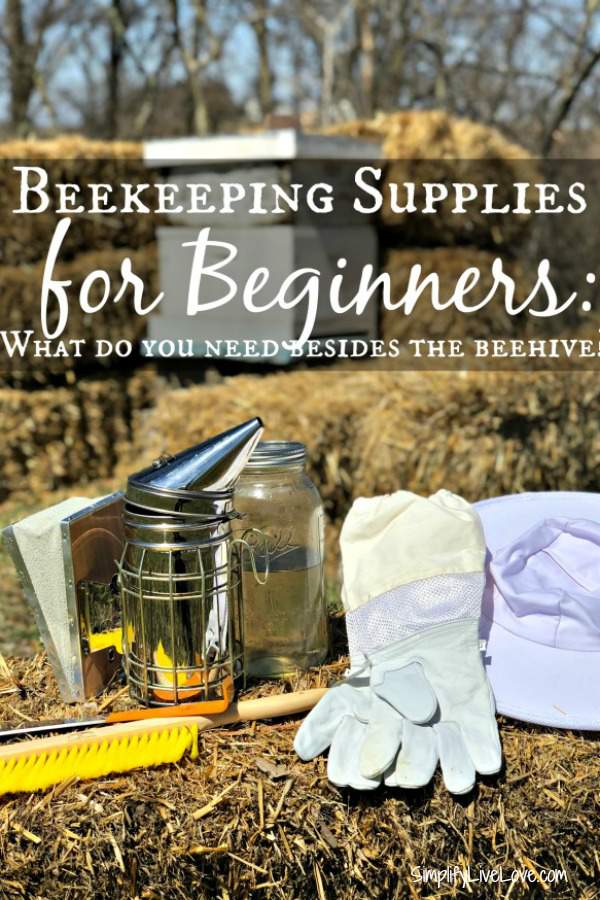
If you want to learn how to start beekeeping, here’s a helpful list of beginning beekeeping supplies you’ll need in addition to your beehive kits, plus a few tips and tricks to help you survive your bee pick up and the first week with your bees.
How to Start Beekeeping: Beginning Beekeeping Supplies
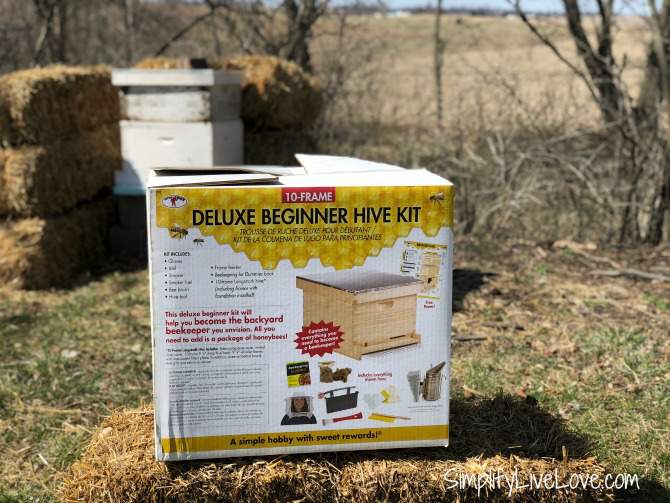
Keeping bees is a new endeavor for me as we just got our first bees a few weeks ago. It was something I’ve been thinking about for a long though, and I’m excited that it’s finally happened! As I was busy learning about how to start beekeeping, one thing I was most concerned with was beehive kits and a list of beginning beekeeping supplies. I knew I’d need a hive and bees, but the other things?
That I didn’t really know. So, I was excited to find almost everything I need for my 10-12,000 bees in one convenient box at Theisen’s Home Farm Auto! We buy a lot at Theisen’s including animal feed, supplies for our chickens and dogs, even baby chicks, and farm clothing.
I love to support local business and was interested to learn that Theisens started out as Theisen’s Battery & Electric in 1927 in Dubuque, Iowa, and now has 23 stores across Iowa and Wisconsin. Since we find so many useful things there, I was not surprised to find everything I need to get started as a beginning beekeeper, including a complete 10 frame beginner hive kit full of great supplies.
Beginning Beekeeping Supplies that Belong in Beehive Kits
For your first bee hive, I recommend getting the beginner’s beehive kit. It was worth it for me not to have to figure out how to assemble my beehive. All I had to add was paint, and the beehive was ready. You can even order the honey bees directly from Theisen’s and they’ll deliver them straight to your post office! Almost everything I list below was included in the kit. If you’d rather piece one together yourself, you certainly can. But, I really like that everything was altogether in one box and the beehive was already assembled! Here’s a list of things you’ll need:
- Beehive & all parts. I recommend the Beginning Beehive Kit
- Blocks for elevating the beehive off the ground and a board to set on the blocks
- Hat & Veil, we got two sets so my husband and I can work together
- Long leather gloves
- Smoker
- Brush
- Pry bar
Items you’ll need that are not included with the Beginning Beehive Kit
- Spray bottle to spray sugar water on the bees to help calm them down when you put them in their hive
- Outdoor paint for the outside of the beehive – don’t paint the interior
- Protective bee suit, if you want
- Bee food – equal parts sugar and water, cooled to room temperature.
- Bee feeder – we used a quart sized mason jar and poked very small holes in the lid
- If you can, buy a frame that’s full of honey from other bees to help your bees succeed
5 Tips to Get your Bees off to a Great Start
Help your first bee hive make it with these tips!
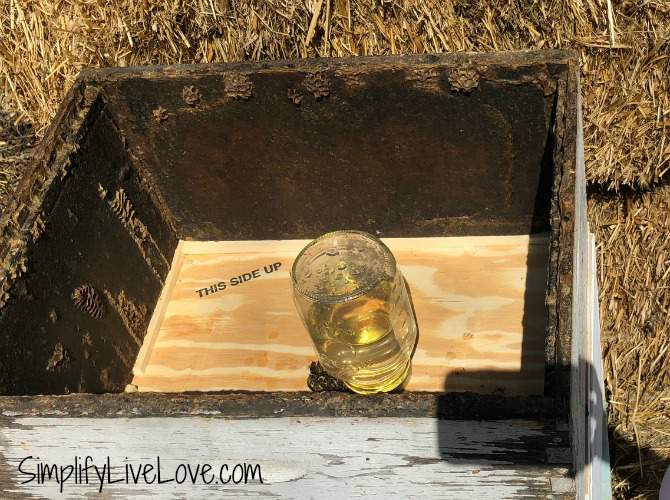
1. Make sure they have food
Make sure your bees have food, as there’s nothing for them to eat before the flowers start blooming. I was happy to buy a frame full of honey for the hive to give the bees immediate food. The beginner’s beehive kit I bought included a feeder, but because it was so cold when we got our bees, the beekeeper recommended using a mason jar feeder instead. It enables the bees to cluster together to feed and helps them keep warmer. You can buy mason jar feeders at Theisen’s, but I have tons of canning jars and all you have to do is poke very tiny holes in a lid to make your own feeder.
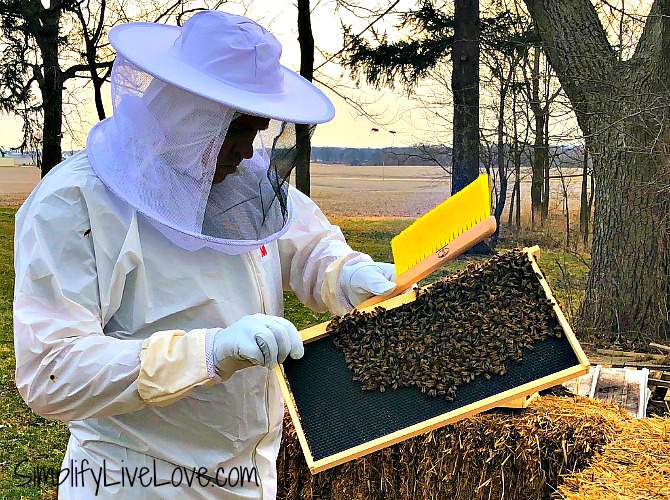
2. Protect them from the cold
If it’s very cold when you get your bees, you will also want to protect them somehow. We stacked straw bales around our hive to help protect the hive for the terrible Iowa winds, and friends of mine wrapped their hive with insulation.
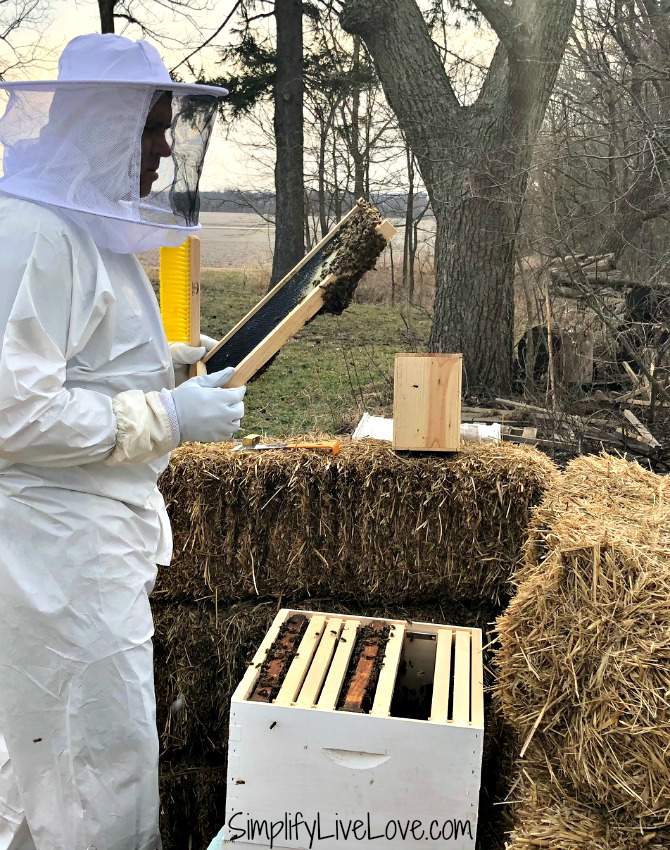
3. Learn How to Do Your First Hive Check
About a week after you hive your bees, you’ll want to check the hive to make sure the queen is out of her box and also to see if she has started laying eggs. We did not find eggs the first time we did a hive check, but I have read that it can take a couple weeks for the queen to start laying eggs and that we need to be patient. We will do another hive check in a couple days and hope to find eggs then!
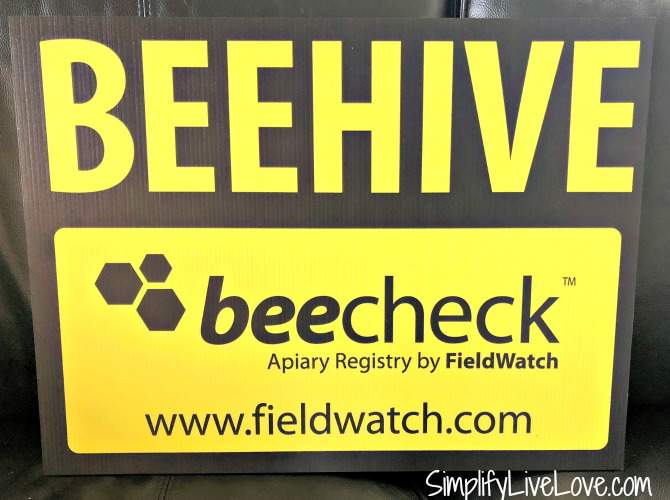
4. Register your bees
If you’re in Iowa, register your bees up with the Iowa Department of Agriculture and Land Stewardship so farmers know to be careful spraying. You might also want to buy signs to place around you property so people know you have bees. If you don’t live in Iowa, just google REGISTER BEES IN (your state) and you’ll learn how to register them!
5. Join a local beekeeping group and find a bee mentor
We’ve only had bees for a very short time, but I already understand how important it is to have a bee mentor for my questions! I’ve reached out to several people already, and it calms me a lot to be able to watch my friend Melanie deal with her hive first. I highly recommend joining a local bee group and finding support groups on social media as well.
If you liked this post on how to start beekeeping, you’ll like these too:
Beautiful Bee Friendly Plants to Add to Your Landscape
Save Bees from Drowning with this Homemade Bee Bath
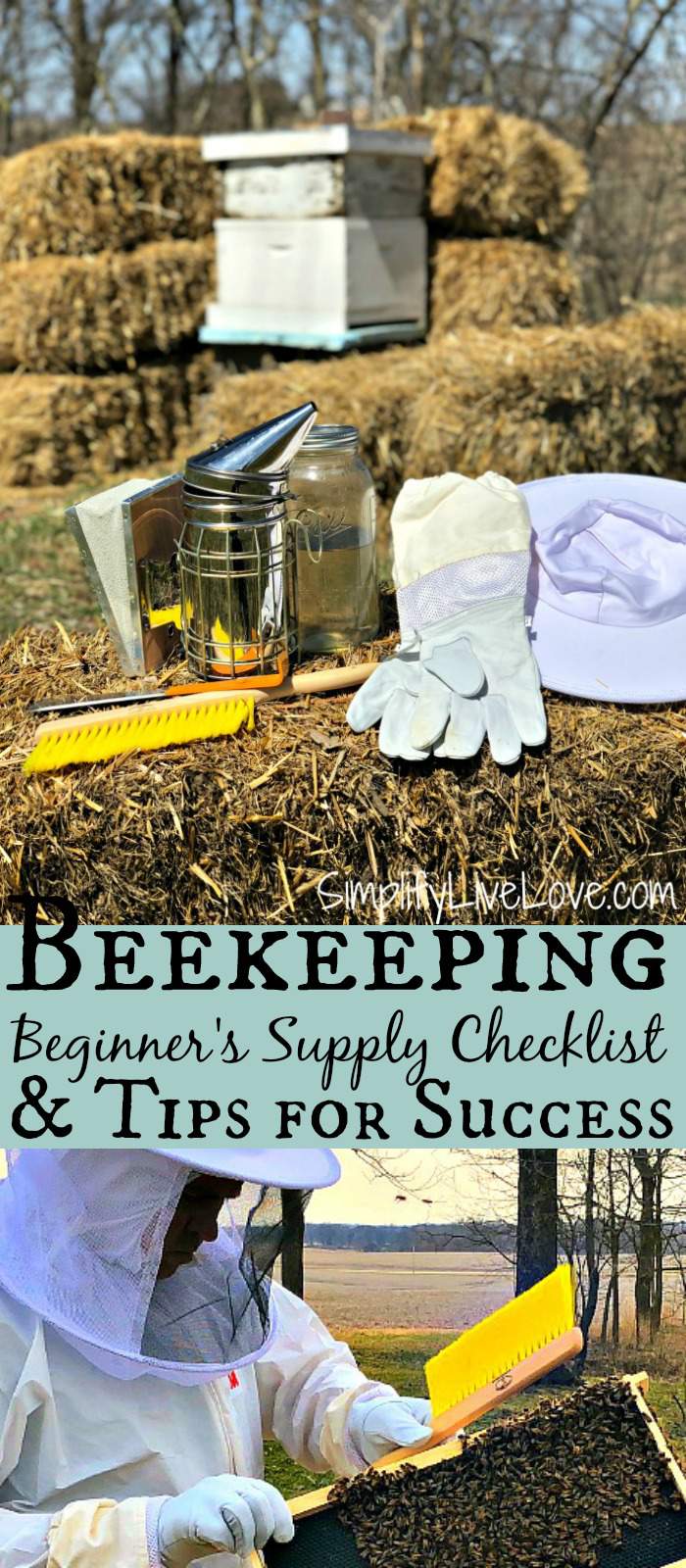

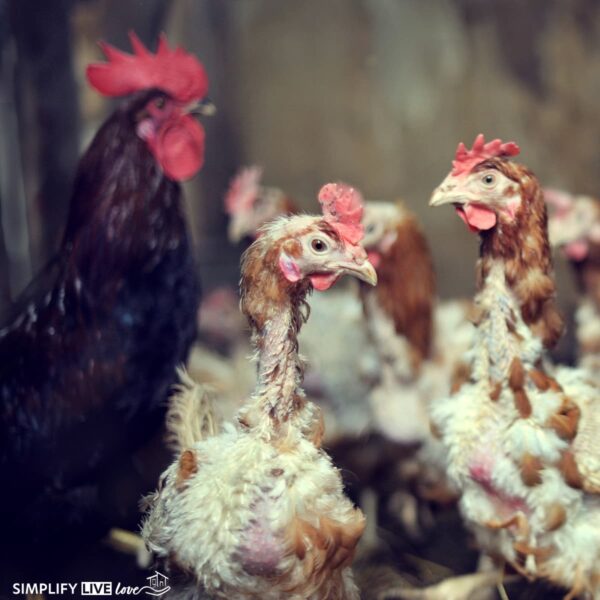
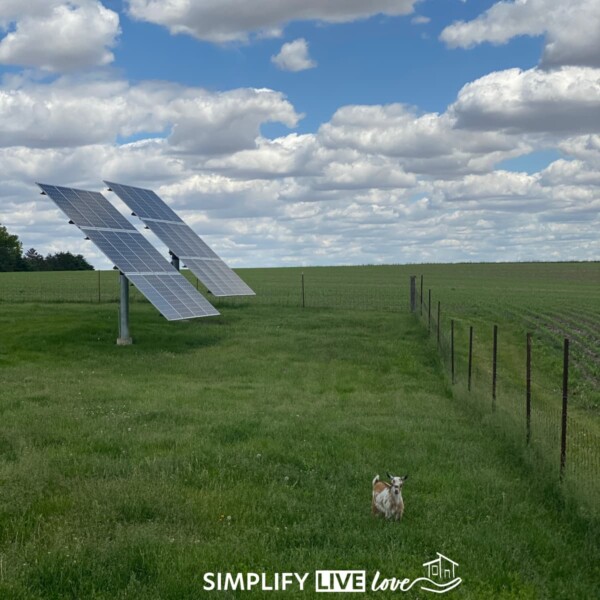
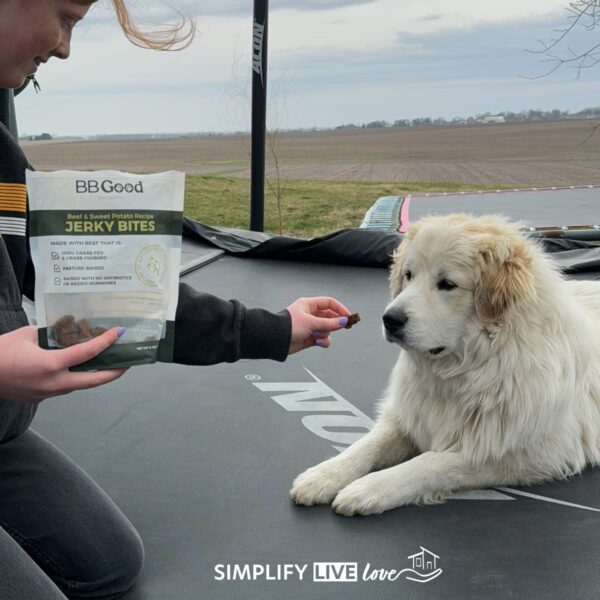
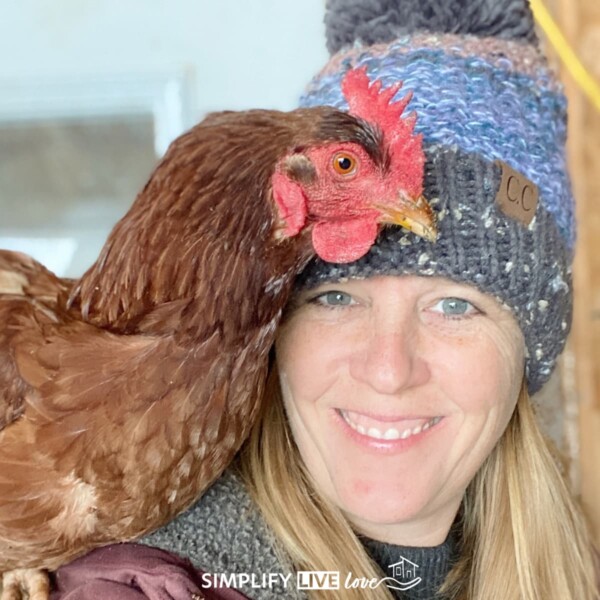









How exciting to start beekeeping! Our neighbor has bees. It’s a challenge for him but the honey is wonderful. We enjoy the added pollination at our place too. I grew an herb garden by our pond for them. They come by the thousands! Good luck!